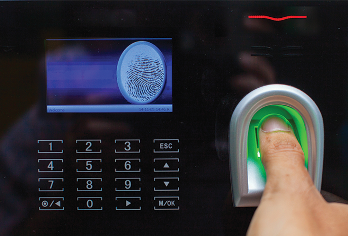Most adults in the UK are now willing to embrace biometric identity for online banking. When it comes to managing accounts online, three in five people (61%) believe biometric identification is either just as secure, or more secure, than the current system of passwords. This includes anything from emails and social media, to banking and pension log-ins.
New research from Experian has highlighted growing consumer confidence in this technology for identification needs. In fact, it has revealed that UK adults are far more comfortable using biometric technology to access their online banking than their social media accounts – twice as much, 64% compared 32%.
Ian Cunningham, a Managing Director at Experian, commented: “Recent innovations have really brought biometrics into everyday life and now the majority of UK adults are willing to accept it as a form of ID verification for accounts. Fear of falling victim to ID theft and perceptions about security have driven this acceptance to some degree.
“However, it would be wrong to say that biometric technology should be adopted in place of passwords, because the best way to stop fraudsters is to make them face a number of barriers. Not just one. Criminals will always go for low hanging fruit, so it up to us to make our houses as safe as possible. The fewer the layers of security, the more vulnerable to theft those systems are. Of course there needs to be a balance between risk prevention and the experience of the person trying to log on.”
Unsurprisingly, finger print scanning is the biometric identification most UK adults are comfortable with. Two fifths (40%) state they would be happy using finger print scanning to access online accounts.
Although there appears to be some reservations about retina scanning, nearly one in five (19%) would still be comfortable having their ID verified in this way. Similarly, nearly one in ten people (9%) would be comfortable with camera facial recognition as a form of identification, while one in twenty (5%) stating they would be happy using voice recognition technology to unlock their online accounts.
Who is most likely to use biometric technology?
Overall, women are slightly less trusting of biometric technology, with 56% saying they believe it is just as secure, or more secure, than passwords, compared to 68% of men. However, they are more comfortable with finger print scanning than their male counterparts – 43% compared to 37%.
When it comes to retina scanning, younger users (18-34 year olds) are surprisingly the most sceptical of this form of ID verification, with only 14% saying they would be comfortable using it. Retina scanning is most popular with the older generation, with 22% of over-55s in favour of it.
Two in three trust biometrics for online banking
Two areas where security is vital are online banking and authorising payments. They appear at the top of the list when it comes to what people would be willing to use biometric technology for. UK adults are two times more likely to trust biometric technology with their online banking than their social media accounts.
| Services people are most comfortable using biometric identification for | |
| Online banking | 64% |
| Authorising payments | 54% |
| Email services | 43% |
| Online retail accounts | 41% |
| Pension access | 38% |
| Social media accounts | 32% |
Ian Cunningham, Managing Director of ID & Fraud at Experian, commented: “Rather than replacing current systems, biometric identification has the potential to play a very key role in enhancing the security that already exists when logging in and managing accounts. The next couple of years are when we should see the biggest boom, which will lead to significant investment from all sectors where customer accounts are held.
“Until then people should use secure, unique passwords for as many online accounts as possible, and ideally all of them. At the very least have a unique password for each type of service provider such as financial services, retails services and email.”








